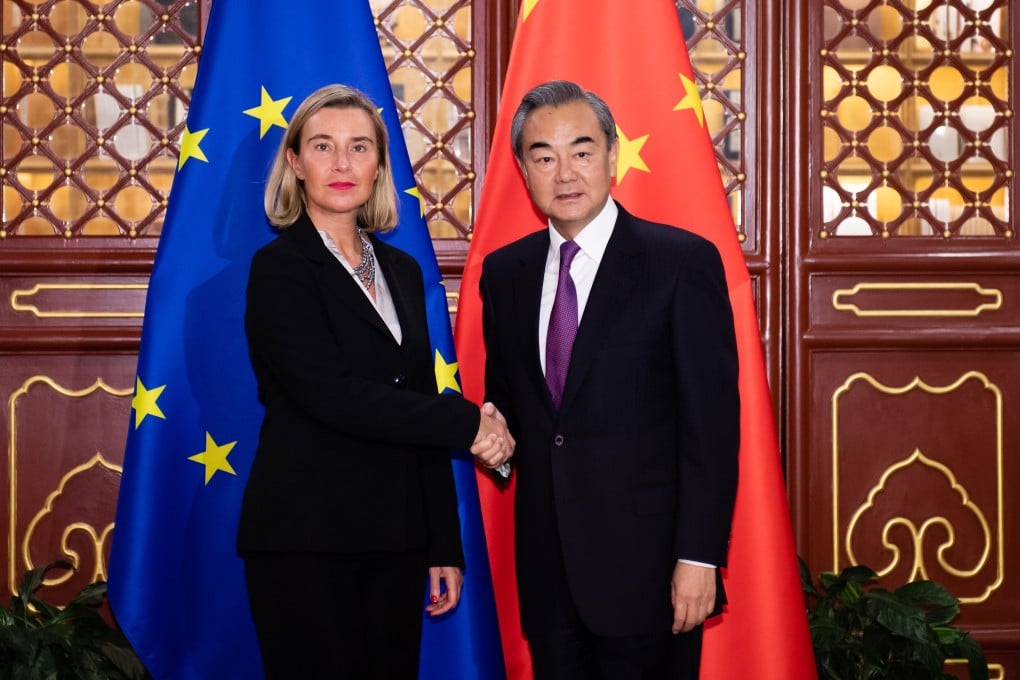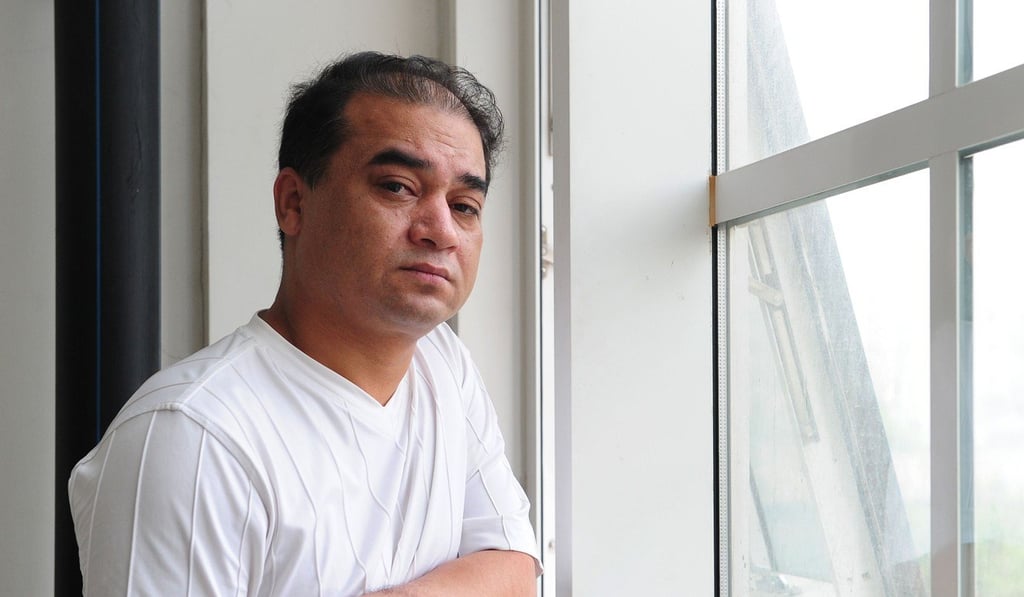China rejects EU support for ‘universal’ human rights, saying ‘satisfaction of people’ is most important measure
- Differing accounts of meeting reveal gulf as Brussels stresses belief in ‘indivisibility of human rights’ and Beijing cites ‘different approaches’ to the matter
- Hours after Wang Yi and Federica Mogherini meet, China reacts angrily to award of Sakharov prize to jailed Uygur activist Ilham Tohti

Chinese officials have told their European counterparts that human rights should be measured by the people’s well-being and rejected the EU’s support for the “universal” values enshrined in the United Nations Charter.
The statements issued by both sides after a meeting between the EU’s foreign affairs chief and Chinese foreign minister Wang Yi underlined their disagreements on human rights by recording their discussions on the topic in markedly different ways.
While the Europeans focused on Mogherini’s support for “universality”, the Chinese statement emphasised her call for mutual respect and comments that there were “different approaches” to the issue.
The issue has long been a bone of contention between the two sides, and hours after the meeting the Chinese foreign ministry reacted angrily to the news that the European Parliament had given its top human rights award to the jailed Uygur activist Ilham Tohti, describing him as a “terrorist”.

The Chinese foreign ministry statement issued after their discussion on a range of foreign policy issues said that Wang had told his counterpart that “satisfaction of the people” should be the way human rights were measured.